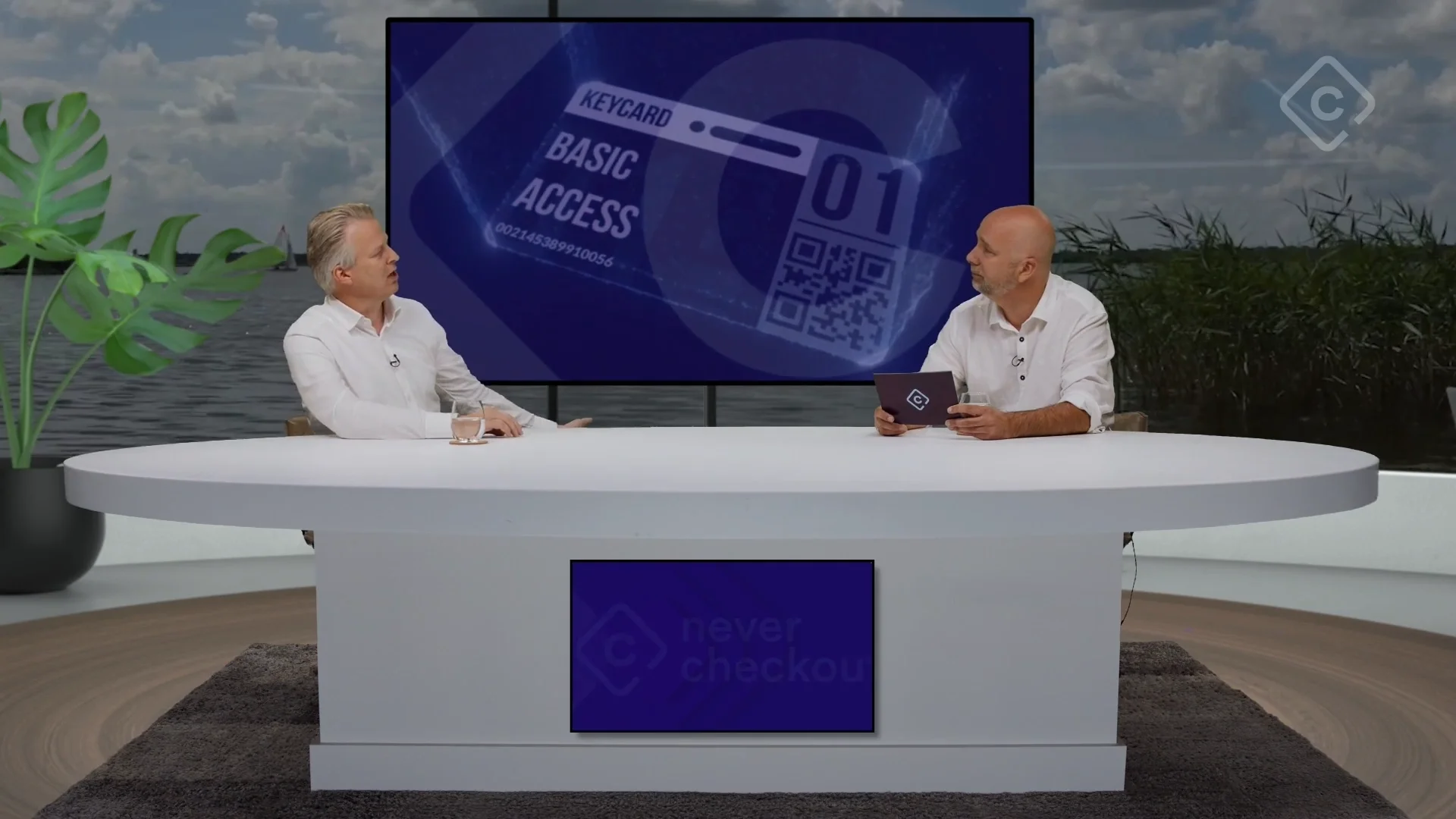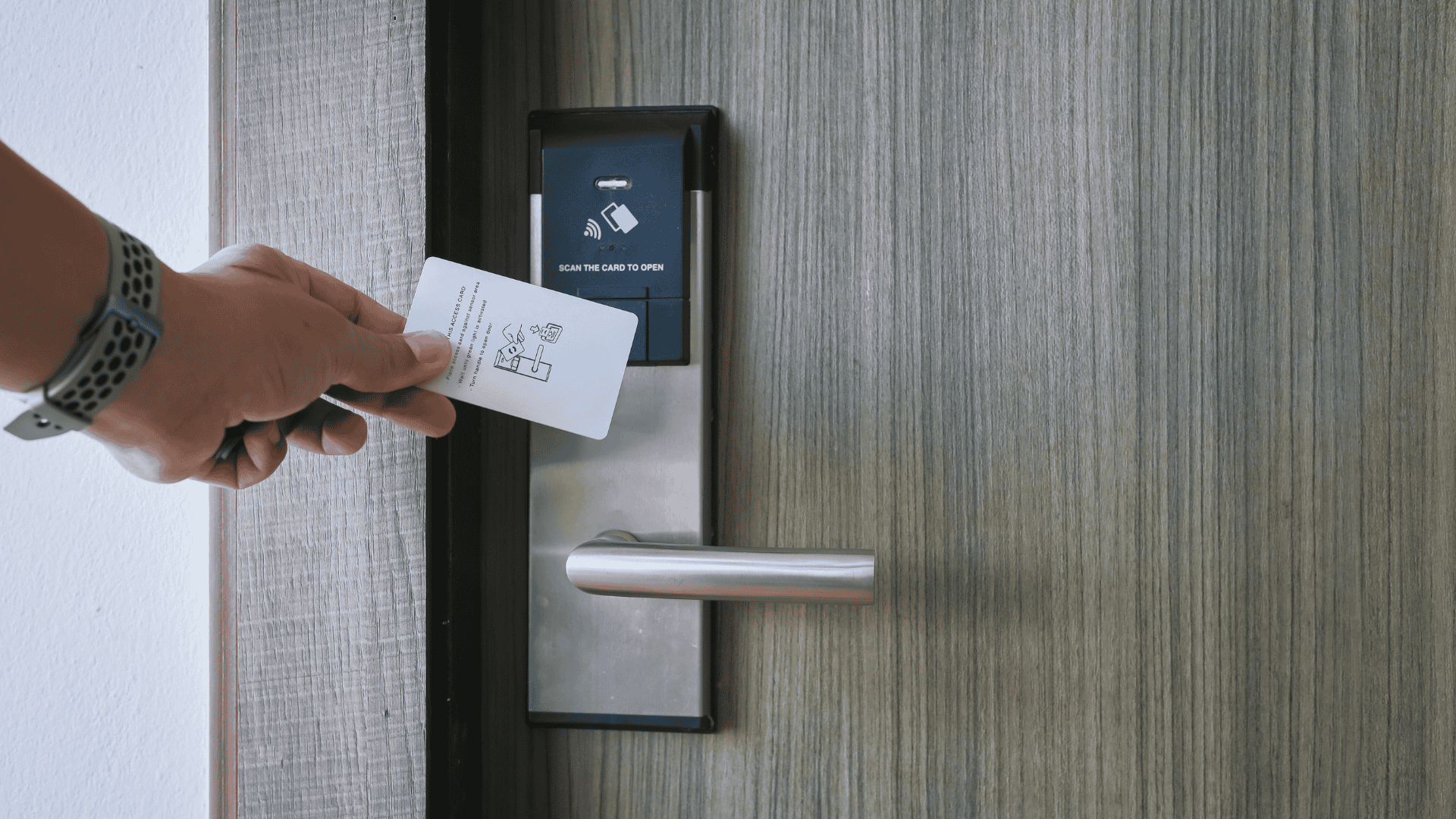In today’s rapidly evolving technological landscape, the hotel industry is undergoing a significant transformation, particularly in the realm of access control.
As we transition into an era where digital solutions are becoming the norm, understanding the nuances of these changes is crucial for hoteliers and guests alike.
This blog delves into the evolution of access control systems and the shift from IT-based solutions to physical access control mechanisms.
The Evolution of Access Control
Access control has always been a cornerstone of security, not just in the digital realm but also in the physical world. Historically, hotels relied on traditional keys and locks to secure rooms.
However, as technology advanced, so did the methods of ensuring guest safety. The introduction of magnetic stripe key cards in the late 20th century marked a significant leap in hotel security.

These cards, which could be easily reprogrammed if lost or stolen, offered a more secure and convenient alternative to traditional keys. But the journey didn’t stop there.
With the rise of digital technology and the internet, the hotel industry saw the potential of integrating IT solutions into access control.
This led to the development of sophisticated systems that could be remotely managed, offering even greater security and convenience for both hoteliers and guests.
The Rise of Cloud-Based Key Cards
In the digital age, the cloud has revolutionized numerous industries, and the hotel sector is no exception.
Cloud-based key cards represent the next frontier in hotel access control.
Unlike traditional key cards, which rely on physical infrastructure and local systems, cloud-based key cards are managed and distributed via the internet.
This not only offers enhanced security but also provides hoteliers with unparalleled flexibility.
Guests can receive their digital keys before even setting foot in the hotel, streamlining the check-in process and enhancing the overall guest experience.

The Journey from NFC to Bluetooth and Back
Near Field Communication (NFC) initially seemed like the future of mobile access control. It allowed for quick, touchless interactions between devices.
However, the rise of Apple’s iPhone, which initially did not support NFC due to security concerns, shifted the industry’s focus towards Bluetooth Low Energy (BLE) as an alternative.
BLE offered a universal solution, compatible across various devices.
However, with Apple’s eventual embrace of NFC, primarily for its Apple Pay system, the industry saw a resurgence in NFC-based solutions.
Today, both NFC and Bluetooth stand as viable technologies for mobile key access, each with its unique advantages.

The Offline Functionality of Mobile Keys
A common misconception about mobile keys is the need for a constant internet connection.
In reality, once a mobile key is downloaded to a guest’s device, it functions independently of Wi-Fi or mobile data.
This offline functionality ensures that guests can access their rooms even in situations where they might not have a stable internet connection, such as power outages or network issues. F
urthermore, the locks themselves operate on independent battery systems, ensuring uninterrupted access regardless of external factors.
This combination of digital innovation and practical design ensures that guests always have a reliable means of entering their rooms.

Conclusion
The transformation of hotel access control is not just a testament to technological advancement but also an embodiment of the hospitality industry’s commitment to enhancing guest experience.
As we’ve journeyed through the evolution from physical keys to cloud-based digital solutions, several benefits have come to the forefront:
– Efficiency and Convenience: Digital keys, especially those integrated with mobile wallets, streamline the check-in process, allowing guests to bypass traditional front desk formalities.
– Enhanced Security: Cloud-based systems and encrypted digital keys offer a higher level of security compared to traditional key cards. The ability to instantly revoke or change access further bolsters this security.
– Flexibility: With the dual functionality of NFC and Bluetooth, hotels can cater to a broader range of devices and guest preferences.
– Sustainability: Digital solutions reduce the need for plastic key cards, aligning with global sustainability goals and appealing to environmentally-conscious travelers.
The Future Outlook of Hotel Access Control
The horizon promises even more innovations. Biometric access, such as facial recognition or iris scans, might soon become a reality, offering an even higher level of security and personalization.
Integrations with smart room systems could allow guests to customize room settings right from their mobile devices.
The Balance between Technology and Guest Comfort
However, as we forge ahead, it’s crucial to strike a balance between leveraging technology and ensuring guest comfort.
While innovations can enhance convenience and security, the hospitality industry must remain sensitive to guests’ privacy concerns, especially when it comes to biometric data.
The goal should always be to enhance the guest experience, making their stay memorable, secure, and comfortable. In wrapping up, the future of hotel access control is bright, filled with possibilities that will redefine the guest experience.
As technology continues to evolve, so will the ways we ensure our guests feel both welcomed and safe.



